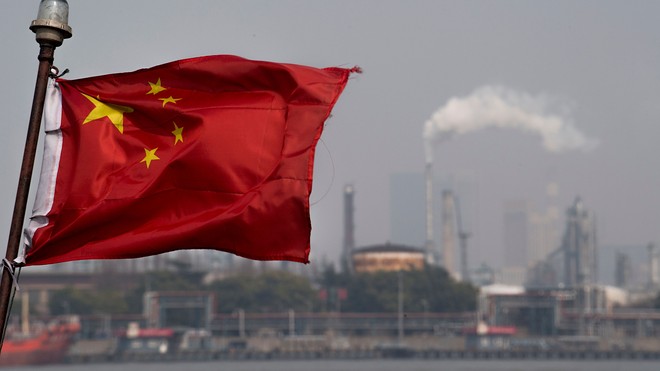
(Miami Herald, 25.May.2021) — A recently approved Chinese tax might translate into a severe economic blow to the Nicolás Maduro regime by almost doubling the importing cost of the oil that Venezuela sells in violation of the U.S. sanctions, analysts said.
The Chinese government is set to start collecting the $30 to $40 per barrel tax on June 12, in a step announced as an environmental measure that penalizes the imports on the part of private refineries of the dirty and extra heavy so-called bitumen mix, sold mostly by Iran, Canada and Venezuela.
But of the three, Venezuela would probably be the hardest hit by the tax, given that the private Chinese refineries are the final destination for the bitumen oil that sells, with the complicity of third parties, in defiance of U.S. sanctions.
Those sales provide the lion’s share of the oil income that the Venezuelan socialist regime still receives after the sanctions closed off the country’s access to traditional markets, and the new tax threatens to leave Maduro without a market to sell its oil products, analysts said.
“If they don’t manage to fix the problem, the impact will be catastrophic because we are talking about all the Venezuelan oil that is being exported. Except for the small amount that is going to Cuba, the rest of the Venezuelan oil is practically going to China,” said Francisco Monaldi, Rice University fellow in Latin American energy policy. “The Venezuelan government is actively trying to speak with the Chinese to see how the situation could be resolved,” he added.
With friends like these
Coming from China, traditionally an important ally to the Caracas regime, the announcement of the tax took many oil-market traders by surprise. The measure could knock out of circulation as much as 350,000 barrels a day of Venezuelan crude that was being mixed with other products in Malaysia in an attempt to hide its Venezuelan origins before being shipped to China.
While announced as an environmental provision, many traders doubt that is the true motivation for the measure.
“The most relevant thing here is to understand what the real motivation behind the tax is, because if the motivation is to hurt independent refiners and help Chinese state-owned companies, that’s one thing. But if it is designed to punish Venezuela, because the Chinese government is concerned about what the U.S. government might do — because it knows that the Americans know perfectly well that the oil that goes to Malaysia ends up in China — then that would be very serious for Maduro, because that means that the Chinese have no real incentive to solve the problem,” Monaldi said. China for years has been a major creditor to the Venezuelan regime, providing in the last few years more than $54 billion in loans, of which the South American country still owes more than a third.
But immersed in the worst economic crisis in its history and isolated by economic sanctions from the United States and other countries, the regime has failed to fulfill its commitments.
“Venezuela has not been a good ally, while the Chinese have been. Venezuela has not been paying China the enormous debt they have with them, nor have they even tried to get to some point where they can begin to service the debt,” said Russ Dallen, president of the investment firm Caracas Capital.
Tax day looming
At the moment Venezuela is trying to ship as much crude oil as possible before the June 12 date, fearing the worst, added Dallen, whose firm monitors the regime’s oil operations. “They know that with a tax of between $30 and $40 a barrel, private Chinese refineries are not going to buy Venezuelan crude because it doesn’t make economic sense,” he said. The Venezuelan regime has been offering deep discounts on the crude it sells under the table due to the risk to buyers to acquire crude sanctioned by U.S. authorities. At a time when the benchmark Brent crude is priced close to $68 a barrel, the Venezuelan bitumen mix is offered at between $40 and $45.
Dallen said that with the recent spike in crude prices, Venezuela may still be able to find buyers if it offers even greater discounts, but the proposal is always accompanied by the possibility that the U.S. Treasury Department may end up punishing the buyer for violating the sanctions.
The tax would further slash the regime’s already dire finances, which saw its oil revenues plummet after the Trump administration sanctioned state-owned Petróleos de Venezuela in January 2019.
So far, Maduro has managed to resist the impact of the sanctions, but the situation has been generating great pressure on the regime, said Antonio De La Cruz, executive director of the firm Inter American Trends.
“This tax puts Maduro against the wall; it forces the regime to face a very critical situation from an income point of view,” said De La Cruz, adding that the pressures could motivate the regime to seek a negotiate a way out of the political standoff with the United States. “They are desperate for the U.S. to lift the sanctions,” he added. ____________________

